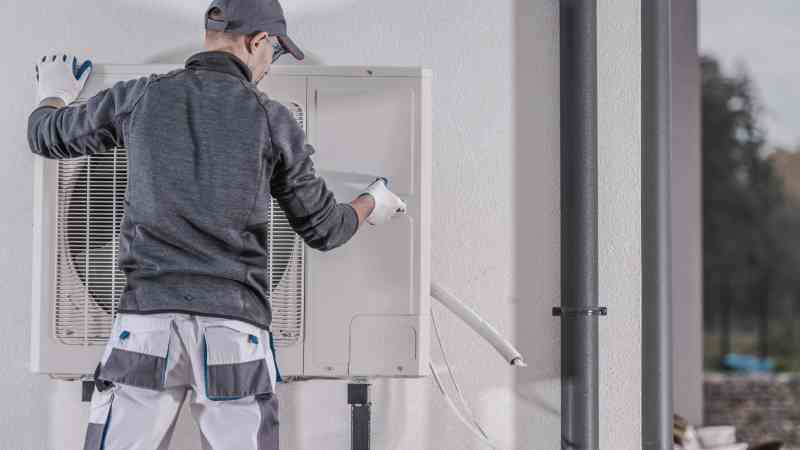Centrica’s domestic gas and elecricity supplier is calling for a drive to install “hybrid heat pump” systems to reduce emissions from home heating, arguing that the much-vaunted option of hydrogen heating is at least a decade off and its costs unknown.
Hybrid heat pump systems combine an electric-powered heat pump, which draws and amplifies heat from the environment, with a conventional gas boiler that can heat water more rapidly and to higher temperatures when needed.
British Gas, Britain’s biggest energy supplier, argues that this offers a route to significantly reducing carbon emissions from home heating while offering “better customer outcomes” for many households than relying on heat pumps alone.
British Gas is attempting to bolster the credentials of the little-used technology through a two-year trial in 75 customers’ homes beginning this year. It will subsidise the £10,000 cost of installing hybrid systems, offering them to households for about a third of that — about the cost of replacing their gas boilers.
It is also lobbying for the government to support the installation of a million heat pumps and hybrid heat pumps in the next five years.
Decarbonising heating is one of the biggest obstacles to Britain’s goal of cutting carbon emissions to “net zero” by 2050.
About 80 per cent of British households have boilers that burn natural gas. The main alternatives involve either switching to “green” gas, such as clean-burning hydrogen, or shifting to electric heating systems such as heat pumps and decarbonising electricity generation.
Both involve significant challenges, such as how to produce hydrogen at scale, or how to produce enough electricity to meet winter peaks of heating demand.
British Gas supplies gas and electricity to about seven million UK households with gas and electricity and is an influential voice on energy.
Heat pumps are installed on the outside of a building and work like a refrigerator in reverse, collecting energy from the environment and using a compressor to raise the temperature. However they do not get water as hot as a gas boiler so they can struggle in the depths of winter unless a house has an underfloor heating system or is very well insulated.
These drawbacks have driven interest in hybrid systems, such as those that British Gas plans to trial, which can switch automatically between the heat pump and gas boiler.
The Committee on Climate Change says that hybrid systems could enable a household to use low-carbon electricity from the heat pump for 85 per cent of their heating demand, while the back-up gas-fired boiler has the potential to burn greener gas in future.
Electricity costs several times more per unit of energy than gas. However, heat pumps are much more efficient than direct electric heating and can generate about three kilowatts of heat energy from one unit of electricity, which Centrica sources say should help make the running costs of a hybrid system comparable to those of using a gas boiler.
The company is however lobbying for the government to “make low carbon heating costs cheaper for customers than gas-only heating”.
Centrica’s enthusiasm for the hybrid option marks the latest evolution in its position on decarbonising heat; four years ago Iain Conn, then its boss, described electrifying heating as “mad” given the higher costs of electricity, but it has warmed to the idea since as the costs of renewables have fallen.
